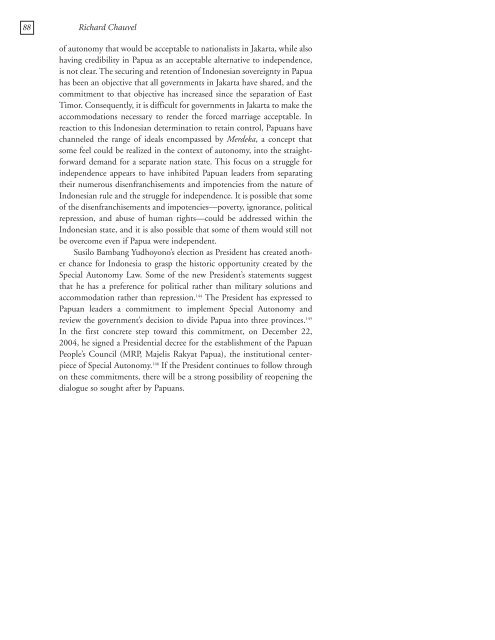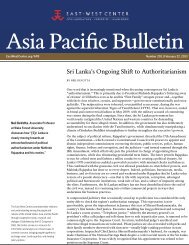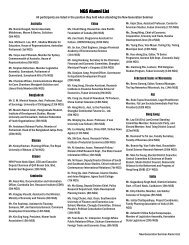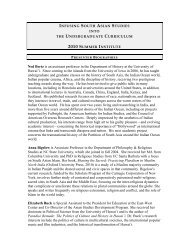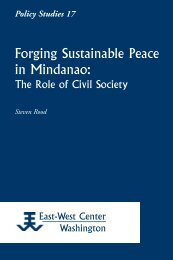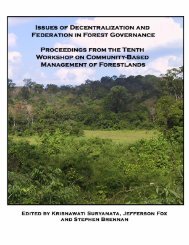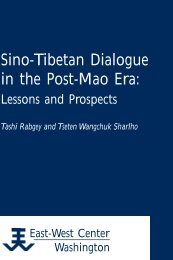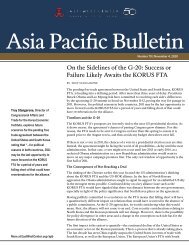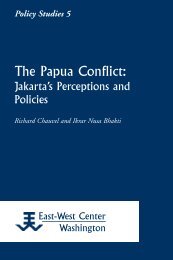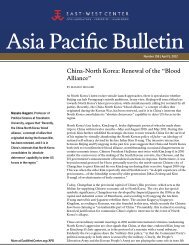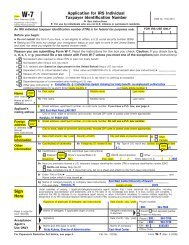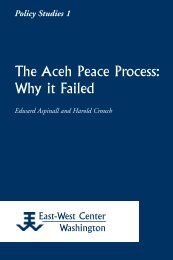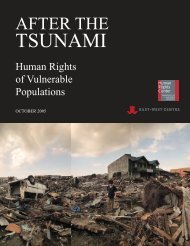Constructing Papuan Nationalism: History, Ethnicity ... - ScholarSpace
Constructing Papuan Nationalism: History, Ethnicity ... - ScholarSpace
Constructing Papuan Nationalism: History, Ethnicity ... - ScholarSpace
- No tags were found...
Create successful ePaper yourself
Turn your PDF publications into a flip-book with our unique Google optimized e-Paper software.
88 Richard Chauvelof autonomy that would be acceptable to nationalists in Jakarta, while alsohaving credibility in Papua as an acceptable alternative to independence,is not clear. The securing and retention of Indonesian sovereignty in Papuahas been an objective that all governments in Jakarta have shared, and thecommitment to that objective has increased since the separation of EastTimor. Consequently, it is difficult for governments in Jakarta to make theaccommodations necessary to render the forced marriage acceptable. Inreaction to this Indonesian determination to retain control, <strong>Papuan</strong>s havechanneled the range of ideals encompassed by Merdeka, a concept thatsome feel could be realized in the context of autonomy, into the straightforwarddemand for a separate nation state. This focus on a struggle forindependence appears to have inhibited <strong>Papuan</strong> leaders from separatingtheir numerous disenfranchisements and impotencies from the nature ofIndonesian rule and the struggle for independence. It is possible that someof the disenfranchisements and impotencies—poverty, ignorance, politicalrepression, and abuse of human rights—could be addressed within theIndonesian state, and it is also possible that some of them would still notbe overcome even if Papua were independent.Susilo Bambang Yudhoyono’s election as President has created anotherchance for Indonesia to grasp the historic opportunity created by theSpecial Autonomy Law. Some of the new President’s statements suggestthat he has a preference for political rather than military solutions andaccommodation rather than repression. 144 The President has expressed to<strong>Papuan</strong> leaders a commitment to implement Special Autonomy andreview the government’s decision to divide Papua into three provinces. 145In the first concrete step toward this commitment, on December 22,2004, he signed a Presidential decree for the establishment of the <strong>Papuan</strong>People’s Council (MRP, Majelis Rakyat Papua), the institutional centerpieceof Special Autonomy. 146 If the President continues to follow throughon these commitments, there will be a strong possibility of reopening thedialogue so sought after by <strong>Papuan</strong>s.


